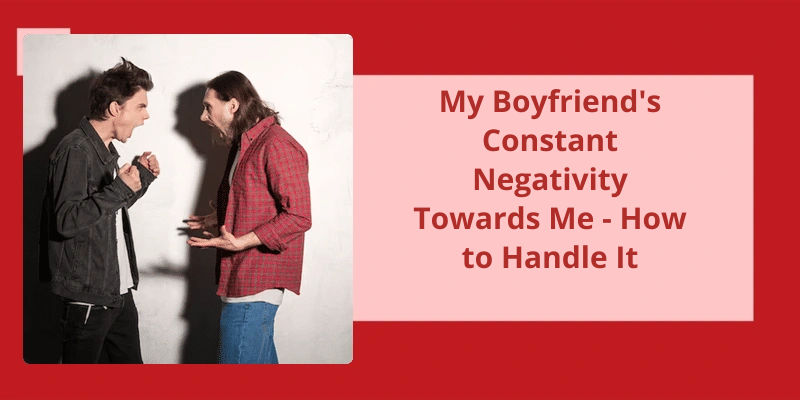When engaging in conversations or interactions with others, it isn’t uncommon to encounter moments where someone slyly and craftily manages to insult or belittle you without explicitly stating it. These subtle forms of insult, which often serve to demean or undermine the target indirectly, can leave a person perplexed and questioning the intentions behind such behavior. This concept can be referred to as "passive-aggressive behavior," where an individual chooses to express their negative feelings or opinions indirectly instead of addressing them head-on. Filled with nuances and veiled intents, indirect insults can be tricky to navigate, as they require a keen sense of observation and interpretation to fully comprehend the underlying message. Consequently, understanding the motive behind these actions and developing effective strategies to address them becomes pivotal in maintaining healthy relationships and fostering open communication.
What Is an Indirect Insult?
When someone indirectly insults you, it’s known as a backhanded compliment or a subtle put-down. For instance, someone might say, “Youre surprisingly smart for someone who didnt go to college,” implying that they expected the person to be unintelligent due to their lack of formal education.
Another type of indirect insult is the use of sarcasm or ironic comments. Sarcasm involves saying the opposite of what one truly means, often in a mocking or contemptuous tone. It can be used to belittle or ridicule someone indirectly. For example, saying “Oh, youre such a genius!” when someone makes a mistake in a condescending manner is a sarcastic form of insult.
Jokes can also be used as a means of indirectly insulting someone. These insults are disguised as humor, making it easy for the offender to hide their intentions. These jokes often target a persons weaknesses or insecurities, subtly mocking or degrading them without being obvious. These indirect insults can be hurtful, as they may cause the person to question themselves or feel humiliated.
Mimicry is another form of indirect insult where someone imitates another persons speech, gestures, or behavior in a mocking or exaggerated way. It’s a common way to belittle or shame someone by drawing attention to their mannerisms or quirks. By mimicking them, the offender indirectly criticizes and insults the persons individuality or uniqueness.
False fascination is yet another technique used to indirectly insult someone. This involves pretending to be interested in a person or their achievements while actually downplaying or diminishing their accomplishments. It’s a way of diminishing someones success or achievements indirectly by feigning admiration or interest but then subtly undermining it. This type of insult often leaves the person feeling invalidated and disrespected.
Overall, indirect insults can be subtle and hard to detect, making it challenging for the victim to confront or address the issue. It’s important to recognize and understand these indirect insults to protect oneself from emotional harm and maintain healthy relationships.
Insults can expose a multitude of psychological traits held by individuals who use them as a means of communication. Such behavior often reveals a mixture of narrow-mindedness, immaturity, poor social skills, and a disregard for others’ feelings, offering insight into their own insecurities and shortcomings. It’s crucial not to internalize these insults and instead adopt a resilient mindset, focusing on personal growth and journeying forward with a smile.
What Is the Psychology of People Who Insult Others?
Insults are fascinating from a psychological standpoint. When individuals resort to insulting others, they often reveal more about themselves than the person they’re attacking. These individuals tend to showcase traits such as intolerance, frustration, lack of manners, and empathy, and sometimes even questionable intelligence. While insults may sting in the moment, it’s crucial not to internalize them.
Those who insult others often exhibit traits of intolerance, frustration, a lack of manners and empathy, and even questionable intelligence. By maintaining our dignity, refusing to engage in unnecessary conflict, and focusing on our own emotional well-being, we can rise above the negativity and thrive. Smiling and moving forward are powerful responses that demonstrate emotional resilience and allow us to stay true to ourselves.
The Role of Ego in Insulting Behavior
When someone indirectly insults you, it’s often associated with the role of ego. Ego refers to a person’s sense of self-importance and their need to maintain a positive self-image. In insulting behavior, individuals may choose to indirectly insult others as a way to protect their own ego.
By using indirect insults, individuals can avoid direct confrontation while still attempting to belittle or criticize the other person. This behavior allows them to maintain a façade of superiority and preserve their own ego without directly acknowledging their negative feelings or intentions.
Indirect insults can take various forms, such as sarcastic remarks, backhanded compliments, or subtle gestures. These actions are often fueled by a desire to undermine the other person’s self-esteem or provoke a reaction without taking full responsibility for their words.
Understanding the role of ego in insulting behavior can help individuals recognize and respond to indirect insults in a more constructive manner. By not letting the insults affect their own self-worth, individuals can avoid getting entangled in ego-driven conflicts and maintain their emotional well-being.
One way to effectively handle a situation where someone has insulted you is by avoiding the temptation to retaliate with insults of your own. Instead, remind yourself that the most effective way to unsettle this person is to show them that their hurtful words hold no power over you. Consider countering their insults with kindness, as it may lead them to reflect on their actions and acknowledge their mistakes.
How Do You Deal With Someone Who Insulted You?
When faced with an indirect insult from someone, it can be challenging to know how to respond. One approach is to avoid returning insults, as engaging in a verbal battle will only escalate the situation. Instead, it’s important to recognize that the best way to upset this person isn’t to insult them in return, but to let them know their words have no impact on you. This can be achieved by remaining calm and composed, refusing to let their insults affect your emotions.
Another strategy is to beat them with kindness. Rather than stooping to their level, try to respond with empathy and understanding. By showing kindness towards them, you may catch them off guard and make them realize the error of their ways. Remember that hurtful comments often stem from the other persons insecurities or issues, so responding with kindness may help disarm their negative intentions.
Furthermore, it’s essential to maintain your self-confidence and self-worth in the face of indirect insults. Remind yourself that you’re worthy of respect and that someone elses opinion doesn’t define your value. Building a strong sense of self-esteem will make it easier to brush off their insults and not let them impact your self-image.
In addition, consider addressing the issue directly with the person who insulted you. Approach them calmly and assertively, expressing how their words made you feel. By doing so, you’re giving them an opportunity to understand the impact of their actions and potentially learn from it. However, it’s important to approach this conversation with a mindset of seeking resolution rather than seeking revenge.
Lastly, it may be helpful to surround yourself with supportive friends and loved ones who uplift you. Seek solace and perspective from these individuals, who can remind you of your worth and provide a safe space to discuss your feelings. Remember, it’s essential to prioritize your emotional well-being and not allow someone elses insults to define your happiness.
Strategies for Self-Reflection and Personal Growth After Experiencing Insults.
- Take time to process your emotions
- Practice self-compassion and self-care
- Seek support from loved ones or a therapist
- Challenge negative thoughts and beliefs
- Engage in activities that bring you joy and fulfillment
- Set goals for personal growth and focus on achieving them
- Develop healthy coping mechanisms
- Learn from the experience and use it as an opportunity to grow
- Surround yourself with positive and supportive individuals
- Practice forgiveness, both for yourself and others
Insulting someone entails deliberately causing humiliation, hurt pride, or shame. It involves affronting, offending, or outraging them, potentially leading to deep resentment or hurt feelings. For instance, insulting every guest at a party can leave lasting negative impressions on individuals involved.
What Is the Word for When You Insult Someone?
They were masters of the art of passive-aggression, experts in the realm of veiled insults. There was no direct attack, no blatant offensive language. Instead, they excelled in the subtle art of causing hurt feelings through underhanded comments and sly gestures. It was as if they’d a secret arsenal of backhanded compliments, cleverly constructed to sting without being too obvious.
They’d a knack for choosing the perfect words that could simultaneously cut down and leave the victim wondering if they’d just been insulted. It was a delicate dance of linguistic manipulation, a game of verbal chess where they played with peoples emotions with tremendous precision. They’d casually drop hints, insinuating things with a smile, leaving the other person feeling perplexed and wounded, but unable to pinpoint exactly what had been said.
Their insults were like stealthy ninjas, stealthily slipping into conversations, leaving the target feeling subtly attacked and undermined. They knew exactly how to exploit a persons vulnerabilities and use them as ammunition, inflicting emotional pain without the need for overt aggression. Their subtle artistry of insult was so carefully crafted that it often left the recipient feeling gaslit, questioning their own sanity and wondering if they’d just imagined the offense.
These individuals were masters of the art of indirect insults. They knew how to manipulate words and actions to maintain an air of innocence while delivering a lethal blow to someones self-esteem. It was a skill that required a certain level of cunning and a deep understanding of human psychology. They reveled in the power it gave them, the ability to inflict emotional harm while remaining seemingly blameless.
They were like emotional guerilla fighters, striking when least expected and leaving their victims reeling in the aftermath. They didnt need raised voices or harsh language to wound deeply. Their insults were like poison-tipped arrows, silently piercing the heart and leaving lasting scars. It was as if they derived a perverse pleasure from watching others squirm under the weight of their well-placed barbs. And while their victims may never know the word that precisely described this indirect insult, they certainly felt it’s impact.
Conclusion
In conclusion, when an individual indirectly insults another person, it’s commonly referred to as covert or veiled derogation. This form of subtle and indirect communication is often employed with the intention of attacking someone's character or intelligence while maintaining a facade of politeness or innocence. It can take various forms, such as backhanded compliments, sarcasm, or passive-aggressive behavior. Recognizing these covert insults can be challenging, but understanding the underlying intent and implications is crucial in order to effectively address and manage such situations.






